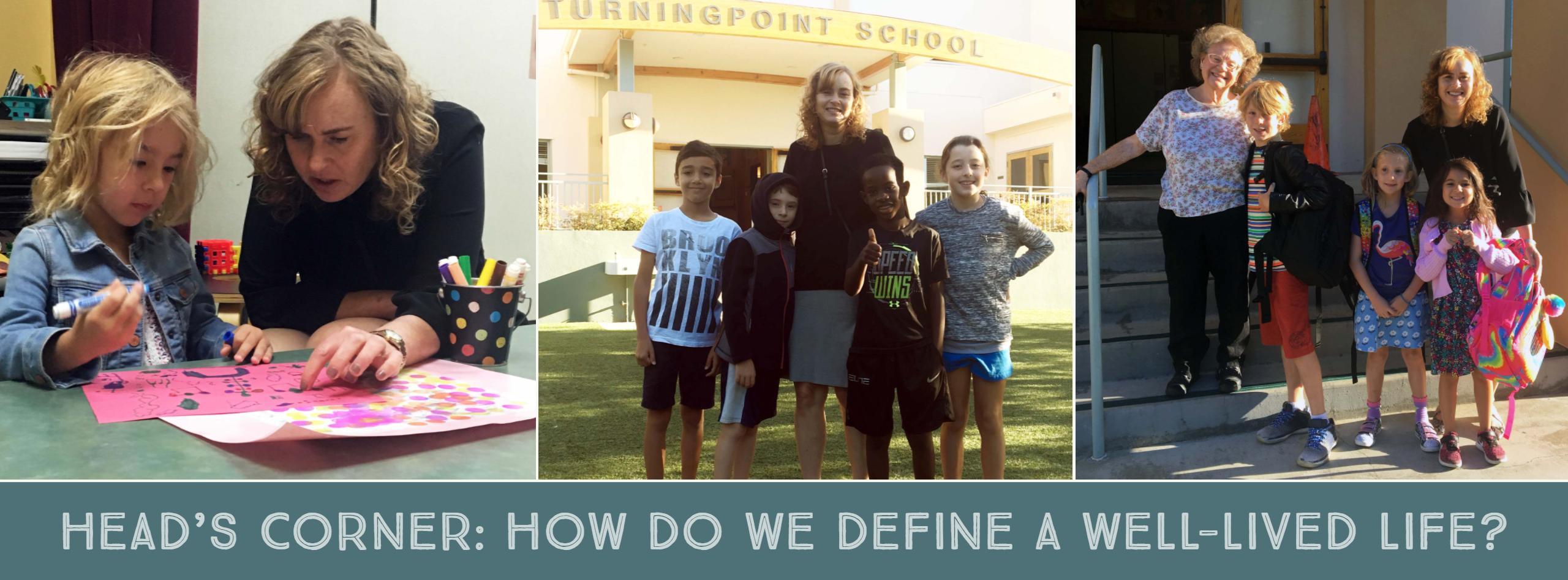
Some of you may have seen The New York Times article, “Can Prep Schools Fight the Class War?” which covers a group of independent schools in New York City that are challenging the ways we define success in education. They assert that the traditional model of focusing exclusively on individual success and achievement is limited in scope, and limiting for our children.
The article draws particular attention to a back to school letter written by John Allen, Head of School at Manhattan’s Trinity School, which laments the “elements of disconnection” pervasive among students, who report feeling “isolated, alienated from their peers.” Allen asks, “How ought we go about the work of attending to our collective as well as individual well-being? And how ought we to educate our students so that they leave us with a commitment not just to advance their own educational interests, but also serve the common good and to give generously to others for the rest of their lives?”
When we focus narrowly on what we perceive to be our child’s singular interests, we also create disconnection, not only with schools that want to help our children to grow more broadly by emphasizing the common good, but within our children themselves, naturally drawn to help, to lead, and to give of their time and talents.
Allen’s letter was meant to serve as a wake-up call to both educators and parents, and parts of it are unapologetically candid, to be sure. But, at the same time, the sentiment is optimistic—focusing on enhancing student well-being, building transformational opportunities to engage the larger world, and ensuring that schools have a coherent curriculum aligned with mission goals and commitments.
As I read his letter, I was heartened to note that Turning Point School has already evolved in these directions. Our focus on social-emotional development and on intellectual and bodily well-being is rooted in our multi-age Montessori classrooms where young children are leaders who look out for others; it evolves every day in our elementary program as children learn to look beyond themselves and their classmates to consider the wider community; and culminates in our uniquely comprehensive middle school advisory program, where our students become leaders, problem-solvers, and change-agents in the lives of others—within the Turning Point School community and, perhaps more importantly, beyond.
From academics in the classroom to service learning in the community, the Turning Point School experience is constructed in a way that enables students to gradually and whole-heartedly understand their place in the world and then use that anchor of self-awareness to connect with others spanning a rich diversity of experience, background, and narrative. In other words, we thoughtfully and deliberately connect our students’ passions and knowledge with the needs of others, and those of a larger society.
Allen’s letter also makes the assertion that a school’s curriculum must align with the goals of its mission. Great schools always strive to be better, and as such, they are always reviewing curricular programs and best practices of teaching and learning. At Turning Point, we are currently examining our curricula and pedagogy to ensure that it continues to meet the needs of students and adheres to our mission as a community of learners.
While we understand that it is our responsibility to prepare students to get good grades and to be admitted to a selective secondary school that will help them to gain access to a top choice college or university, we also know that when this goal is the sole driver of an education, so much is lost: students’ love of learning, a sense of higher purpose, robust mental health. But too often, out of love for our children and anxiety about the future, we push them on this trajectory, kicking the can of their vibrancy and purpose down the road. The unprecedented levels of anxiety, depression, and purposeless reported among high school and college students should give us pause and direct us to ask, what is the definition of a well-lived life?
Addressing this question was at the heart of my decision to introduce the community-wide book read, How to Raise an Adult by Julie Lythcott-Haims. We want our children to believe in their abilities to face challenges, solve problems, and develop independence in thoughts and actions. We want to support their growth into the best versions of themselves that they can be.
How to Raise an Adult is a hopeful book, one that challenges the model of scarcity and instead encourages us to create space and time for our children to achieve fuller, richer lives, connected to meaningful engagement with self, community, and the world. It is my intention that this book inspires a renewed commitment to serving the community and putting students’ critical thinking, creativity, and empathy to good use.
I invite our parents to participate in creating a shared vision for our children’s development by joining other Turning Point parents and educators on Wednesday, October 11 at 6:00 pm, as we explore the themes of this book, openly discuss what resonated (and maybe what did not resonate) with us as parents and educators, and continue our important work together raising thoughtful, curious, empathetic, and strong children.
Warmly,
Laura
Dr. Laura Konigsberg
Head of School


































